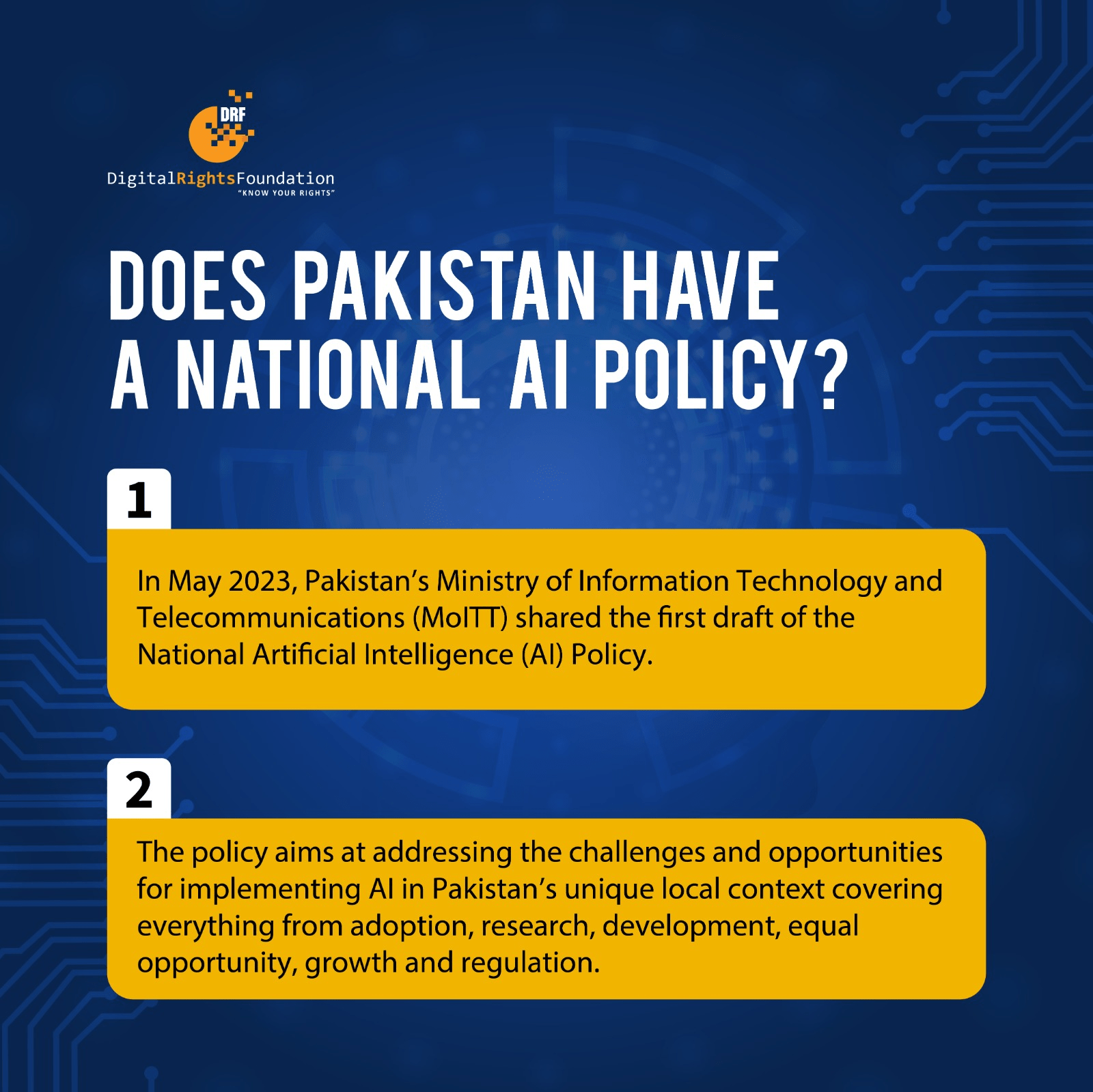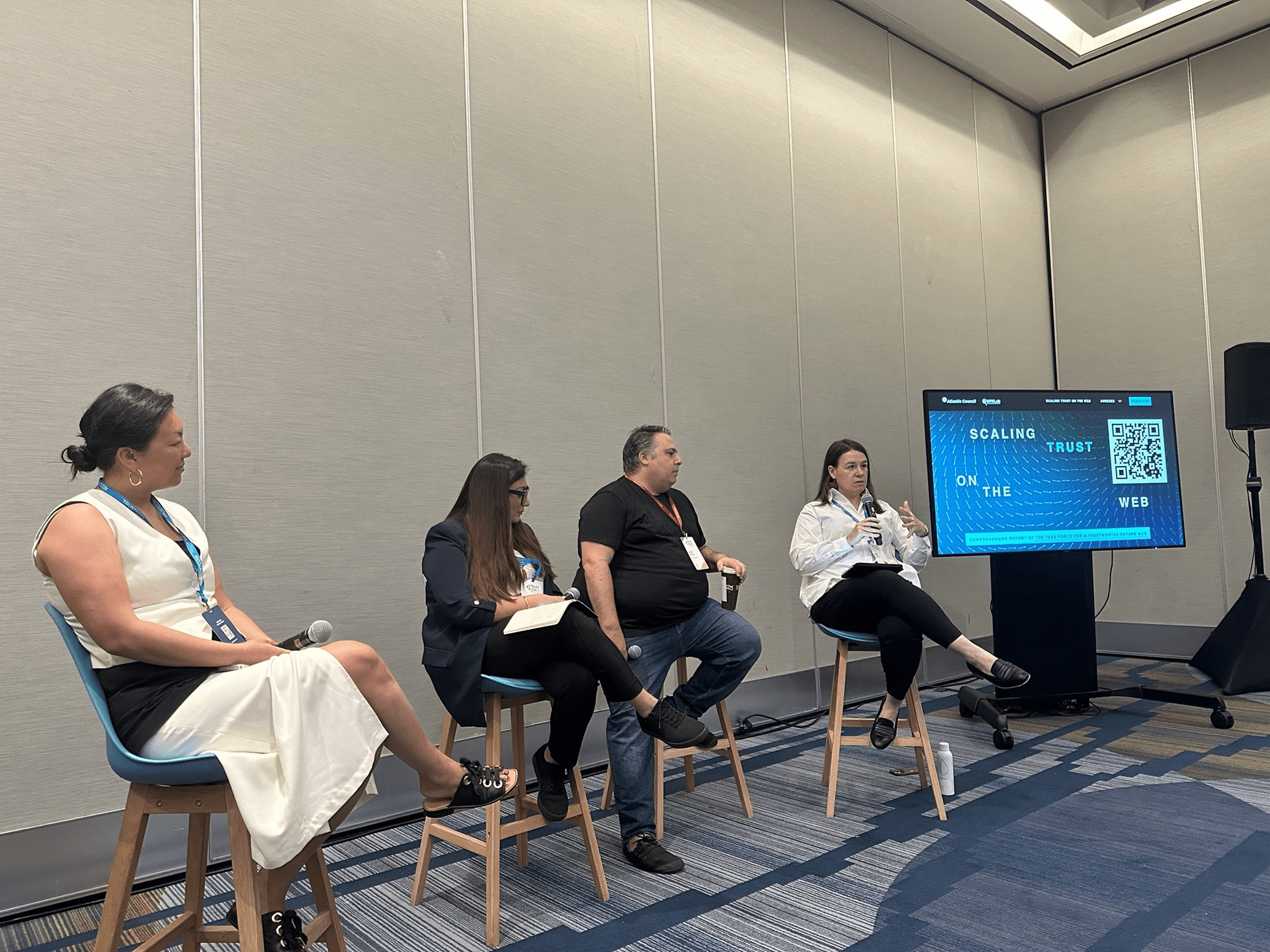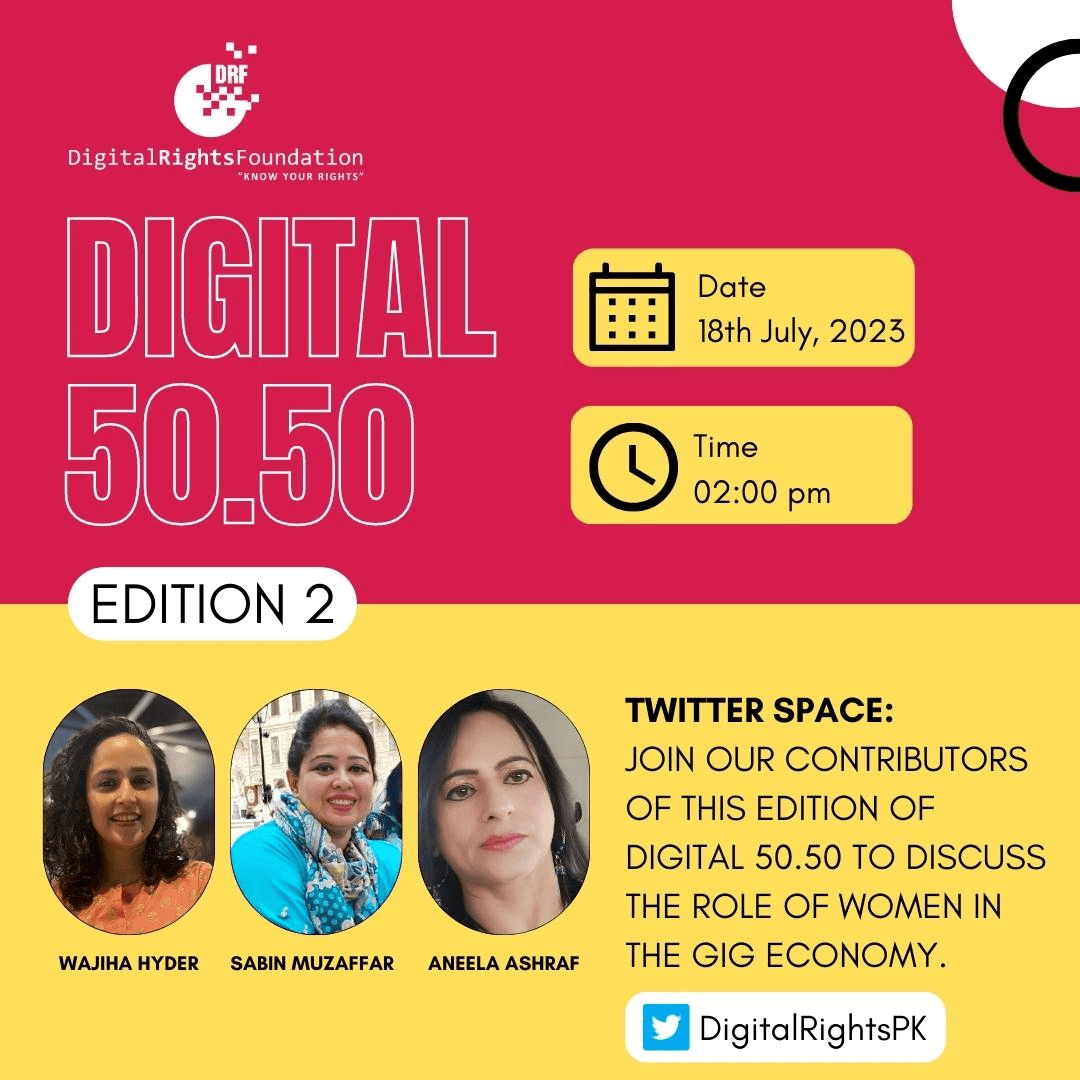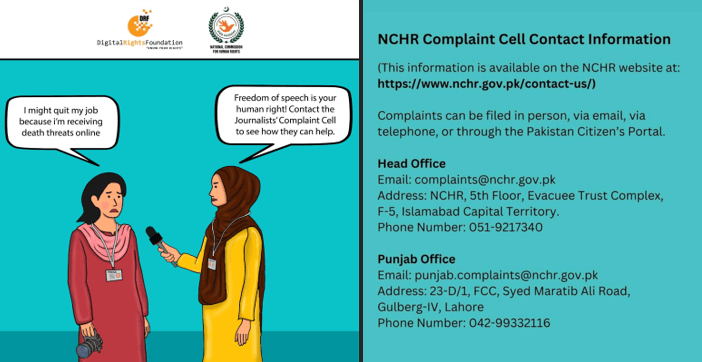August 16, 2023 - Comments Off on Digital 50.50: Women Technology & the Gig Economy
Digital 50.50: Women Technology & the Gig Economy
 DRF released its new edition of Digital 50.50 on 'Women, Technology & Gig Economy' in July. The edition focused on the role of women in the digital gig economy in Pakistan and its opportunities and challenges. You can read our new features in the link below:
DRF released its new edition of Digital 50.50 on 'Women, Technology & Gig Economy' in July. The edition focused on the role of women in the digital gig economy in Pakistan and its opportunities and challenges. You can read our new features in the link below:
https://digitalrightsfoundation.pk/women-technology-and-gig-economy
DRF Strongly condemns the recent incident of sexual exploitation and harassment at the Islamia University Bahawalpur.
DRF Strongly condemns the recent incident of sexual exploitation and harassment at the Islamia University Bahawalpur. This distressing turn of events marks the third high-profile case in many years. In 2019, a similar incident like this took place at the University of Balochistan, Quetta, and later at the King Edward Medical University Lahore.
Incidents like these are indicative of an alarming pattern of misconduct emerging, where at least two of the known cases implicate the chief of security as the primary accused.
Click here to read our statement:
https://digitalrightsfoundation.pk/drf-strongly-condemns-the-recent-incident-of-sexual-exploitation-and-harassment-at-the-islamia-university-bahawalpur/
Online Campaigns:
The Digital Rights Foundation spoke on the judgment of the Lahore High Court (LHC) dated 13th of July, 2023.The judgment is a seminal development in terms of creating a precedent that highlights the importance of the right to privacy, with respect to seizure of devices, particularly mobile phones, during an investigation.
Here the LHC reads Articles 13 and 14 of the Constitution of Pakistan in conjunction to highlight privacy of individuals and declares spying or extraction of data without a Court order to be unconstitutional and illegal.
DRF is heartened by the take of the honourable justices of the provincial High Court, who have placed emphasis on the protection of the crucial right to privacy.
Policy Initiatives:
July was a busy month for DRF as we worked on policies and proposed laws put forward by the government. DRF is committed to providing feedback to all government stakeholders to improve laws and policies and ensure they are in compliance with international best practices and responsive to local context.
Feedback on ‘Draft National Artificial Intelligence Policy 2023’
DRF submitted it’s detailed feedback to the Ministry of Information Technology and Telecommunications (MOITT) on the ‘Draft National Artificial Intelligence Policy 2023’. Emerging technologies such as AI are rapidly informing our everyday lives and it is essential that regulation takes into account human rights and Pakistan’s specific context. Our submission seeks to provide a digital rights perspective and signpost loopholes within the existing policy.
The feedback document can be accessed here.
Legal Analysis: Personal Data Protection Bill 2023
The Cabinet has approved a draft of the Personal Data Protection Bill on July 27, 2023 and the Bill is expected to be presented in Parliament soon. DRF has consistently been providing feedback on all versions of the Bill since 2018 and has produced an updated analysis of the latest publicly available version of the Bill (dated May 2023) raising concerns regarding data localisation requirements and independence of the proposed Commission, among other issues.
The updated analysis can be found here.
Blog Post: Digital Rights in Pakistan: A Review of 2023
DRF’s research interns this summer, Maham Sohail and Rameen Durrani, put together a timeline of digital rights-related events in the first six months of 2023 highlighting issues of internet shutdowns, new digital policies and prosecutions based on digital speech.
The blog can be accessed here.
Exploring Jurisprudence on Transgender Rights: A Comparative Study
In light of the recent Federal Shariat Court judgment on the ‘Transgender Persons
(Protection of Rights) Act, 2018’, DRF conducted a study understand the legality of transgender rights from a constitutional, Islamic jurispduence, privacy and gender-based violence perspective.
The study can be found here.
Submission to Meta Oversight Board on Gender-based Violence
DRF submitted its comments for the Meta Oversight Board (OSB) two cases regarding Gender-based Viiolence (2023-002-IG-UA and 2023-005-IG-UA ON VIOLENCE AGAINST WOMEN (SWEDISH)), the judgment for was issued by the Board in July 2023. DRF’s submission (available here) highlighted the importance of digital spaces in raising issues of Gender-based Violence and how removing content raising awareness regarding these issues is tantamount to gender discrimination.
Cyber Harassment Helpline Policy Brief 2022
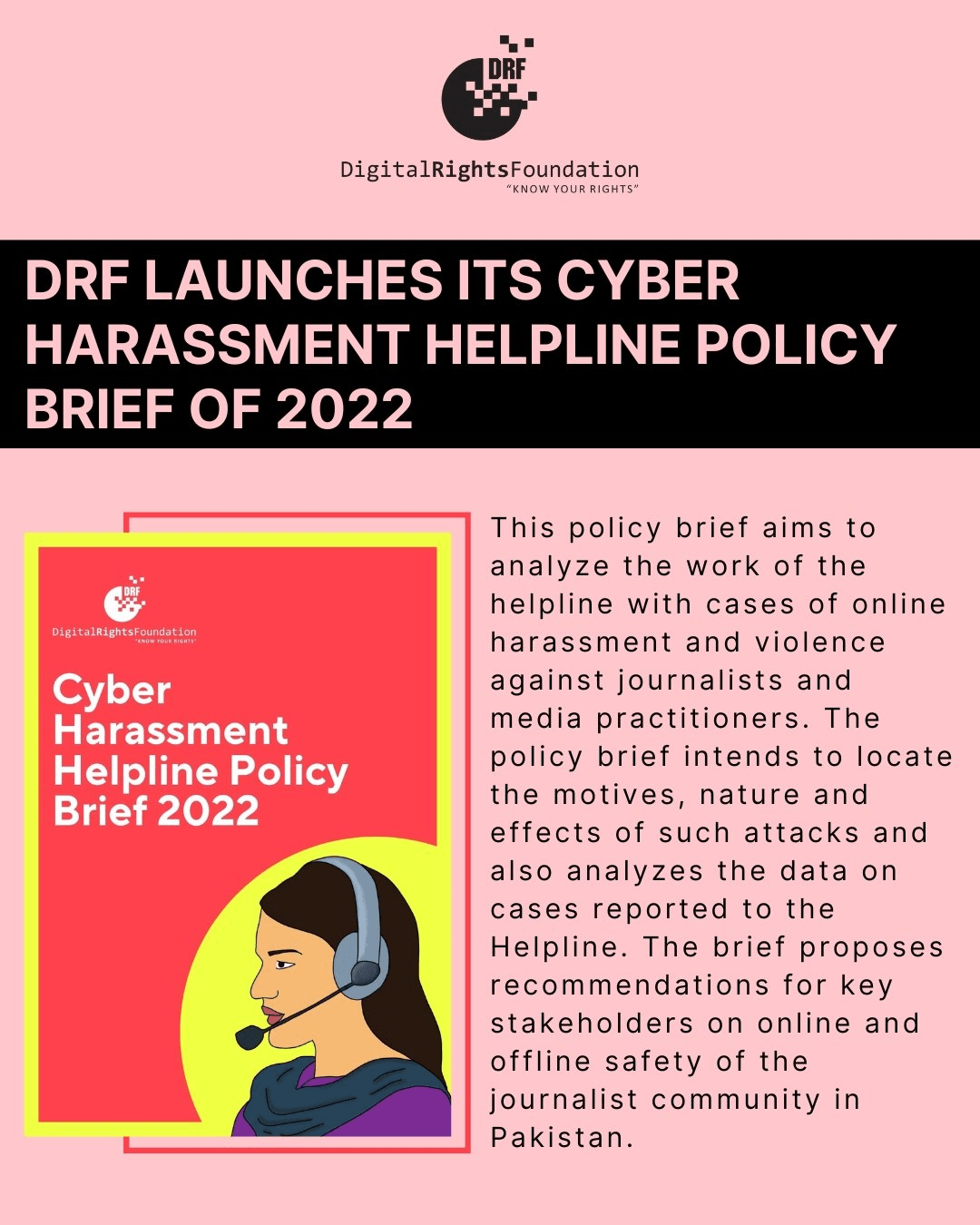 DRF launched its cyber harassment policy brief of 2022. The policy brief aims to analyze the work of the helpline with cases of online harassment and violence against journalists and media practitioners.
DRF launched its cyber harassment policy brief of 2022. The policy brief aims to analyze the work of the helpline with cases of online harassment and violence against journalists and media practitioners.
Link to policy brief:
Link to Press Release:
Press Coverage:
DRF received 75 cases of Online Harassment of Journalists
DRF’s policy brief was covered by Ananke magazine highlighting the 75 cases of online harassment the helpline received in 2022.
Link to article: https://anankemag.com/2023/07/24/drf-pakistan-received-75-cases-of-online-harassment-against-journalists/
75 Journalists reported Cyber Harassment in 2022
DRF’s policy brief was covered by Dawn in detail particularly about the 75 online cases the helpline recieved.
Link to article:
https://www.dawn.com/news/1766675/75-journalists-reported-cyber-harassment-in-2022
Events:
Nighat Dad at TrustCon
DRF’s Nighat Dad spoke at TrustCon on a panel discussing her role at the task force report on the future of web by Atlantic Council. On the panel at the event Nighat also spoke to importance of not just saying “civil society” as if a monolith. Being a civil society group in Pakistan is not the same as US. We don’t always engage w/ those most impacted, or prioritize what they flag. Folks not talking about this years’ Pakistan elections
You can see the newly launched report here:
Twitter Space: the role of women in the gig economy
Digital 50.50 contributors Wajiha Hyder, Sabin Muzaffar and Aneela Ashraf were part of a twitter space on the role of women in the gig economy highlighting their contributions in the second edition of Digital 50.50.
You can listen to the conversation here:
Thank you to our contributors for such wonderful insight on the topic of Women in the Gig economy @critoe @wajihahyder @AneelaAshraf14 @anankemag @msm_mirza
If you've missed the conversation you can listen to it here again:https://t.co/b1hFGY69f8
— Digital Rights Foundation (@DigitalRightsPK) July 18, 2023
Training with Human Rights Defenders on Digital Safety and Legal Recourse
DRF conducted a series of workshops with human rights defenders on legal recourse and digital safety in the month of July. The team discussed relevant laws with respect to human rights defenders and activists along with online safety tips for them. The workshops took place on the 13th, 17th, 19th and 21st of July.
Workshop on Geolocating Images: Methods, Tools, and Creativity - ETI - 20 July 2023
DRF’s Aqsa Javed attended a workshop on “Geolocating Images: Methods, Tools, and Creativity” which was organized by ETI, on the 20th of July 2023. The workshop was initiated with a brief introduction to the concept of geolocating and image analysis and then led to an overview of how geolocation technology works. Following the initial overview, the workshop delved into a comprehensive discussion of tools, and methods employed for geolocating images by using different techniques, including map markings. Furthermore, the workshop touched upon real-life examples and different online platforms that are available for geolocating images effectively.
DRF Updates:
Cyber Harassment Helpline
The Cyber Harassment Helpline received 250 complaints in total July, with 112 complaints by women and 5 from transgender persons. If you’re encountering a problem online, you can reach out to our helpline at 0800-39393, email us at [email protected] or reach out to us on our social media accounts. We’re available for assistance from 9 am to 5 pm, Monday to Sunday.
DRF NCHR Complaint Cell for Journalists
DRF and NCHR are operating a Complaint Cell to support journalists that have been the target of human rights abuses. The contact information for the Journalist Complaint Cell is available on the NCHR website at https://nchr.gov.pk/contact-us/
IWF Portal
DRF in collaboration with Internet Watch Foundation (IWF) and the Global Fund to End Violence Against Children launched a portal to combat children’s online safety in Pakistan. The new portal allows internet users in Pakistan to anonymously report child sexual abuse material in three different languages- English, Urdu, and Pashto.
www.report.iwf.org.uk/pk
StopNCII.org
Meta along with Revenge Porn Helpline (RPH) has launched a portal to support victims of Non-Consensual Intimate Image Abuse (NCII). NCII is a free portal for reporting cases of sensitive or sexual content existing online. Once you report a case, the necessary steps will be taken to block the images from the platform.


